Cinnamon
How to submit an article:
- Registered users can submit any published journal article that has a unique DOI (Digital Object Identifier) name or link to Research Hub.
- For example, you can paste the full DOI link:
https://doi.org/10.1109/5.771073or just the DOI name:10.1109/5.771073into the field above and click submit. - The person who is first to submit a valid article to Research Hub will forever be credited for it, and every article submission earns you +6 Research Points.
Related Topics
Published research studies are articles that present the findings of original research that has undergone a peer-review process and has been made publicly available in scholarly journals, books or other media.

Manufacture and Evaluation of Novel Chocolate for Girls' Dysmenorrhea
2023 Mar 01 Journal of Food and Dairy Sciences Shalaby, A, Moawad O, Mostafa M
Randomised Controlled Trial Ginger Chinese Cinnamon Dark Chocolate Iron Field Mint CinnamonCinnamon, ginger, and mint enhanced chocolates effectively reduce menstrual pain and improve blood iron levels without increasing body weight or negatively affecting cholesterol.

A comparison of the effects of cinnamon, ginger, and metformin consumption on metabolic health, anthropometric indices, and sexual hormone levels in women with poly cystic ovary syndrome: A randomized double-blinded placebo-controlled clinical trial
2022 Nov 29 Frontiers in Nutrition Dastgheib M, Barati-Boldaji R, Bahrampour N, Taheri R, Borghei M, Amooee S, et al.
Randomised Controlled Trial Cinnamon Testosterone Metabolic Syndrome FSH Ginger PCOS Insulin Resistance Metformin Ceylon Cinnamon LHIn women with polycystic ovary syndrome, cinnamon reduced insulin resistance and testosterone levels similar to metformin, and ginger decreased follicle-stimulating and luteinizing hormones.
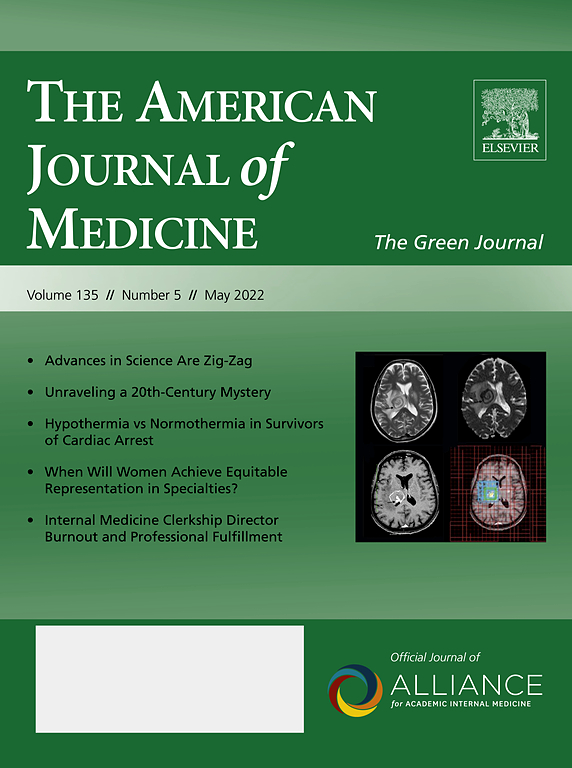
Association Between Cinnamon Consumption and Risk of Cardiovascular Health: A Systematic Review and Meta-Analysis
2022 Jan The American Journal of Medicine Krittanawong C, Isath A, Scott CZ, Wang Z, Kaplin S, Jneid H, et al.
Our meta-analysis suggests that there is no association between cinnamon consumption and differences in LDL-c, HDL-c, and hemoglobin A1C levels.
Systematic Review Meta-Analysis
The Traditional Chinese Medicine Prescription Pattern of Endometriosis Patients in Taiwan: A Population-Based Study
2022 Jan Frontiers in Pharmacology Ruei-Chi Fang, Yueh-Ting Tsai, Jung-Nien Lai, Chia-Hao Yeh, Chien-Tung Wu
Cohort Study Gui Zhi Fu Ling WanThe majority of reproductive age women with endometriosis in Taiwan use traditional Chinese medicine, specifically Gui Zhi Fu Ling Wan, to relieve related symptoms.

Safety of Cinnamon: An Umbrella Review of Meta-Analyses and Systematic Reviews of Randomized Clinical Trials
2022 Jan 18 Frontiers in Pharmacology Gu DT, Tung TH, Jiesisibieke ZL, Chien CW, Liu WY
Meta-Analysis Systematic Review Chinese CinnamonCinnamon is a safe therapeutic agent without significant adverse effects based on systematic reviews and meta-analyses.
Research insights are moderated by the Research Hub team and offer an at-a-glance overview of interesting research findings.

2023 Journal of Food and Dairy Sciences
Cinnamon, ginger, and mint enhanced chocolates effectively reduce menstrual pain and improve blood iron levels without increasing body weight or negatively affecting cholesterol.
Randomised Controlled Trial Chinese Cinnamon Dark Chocolate Field Mint Ginger Iron
Manufacture and Evaluation of Novel Chocolate for Girls' Dysmenorrhea
Shalaby, A, Moawad O, Mostafa M

2022 Frontiers in Nutrition
In women with polycystic ovary syndrome, cinnamon reduced insulin resistance and testosterone levels similar to metformin, and ginger decreased follicle-stimulating and luteinizing hormones.
Randomised Controlled Trial Ceylon Cinnamon FSH Ginger Insulin Resistance LH
A comparison of the effects of cinnamon, ginger, and metformin consumption on metabolic health, anthropometric indices, and sexual hormone levels in women with poly cystic ovary syndrome: A randomized double-blinded placebo-controlled clinical trial
Dastgheib M, Barati-Boldaji R, Bahrampour N, Taheri R, Borghei M, Amooee S, et al.

2022 Frontiers in Pharmacology
Cinnamon is a safe therapeutic agent without significant adverse effects based on systematic reviews and meta-analyses.
Meta-Analysis Chinese Cinnamon
Safety of Cinnamon: An Umbrella Review of Meta-Analyses and Systematic Reviews of Randomized Clinical Trials
Gu DT, Tung TH, Jiesisibieke ZL, Chien CW, Liu WY

2022 Frontiers in Pharmacology
The majority of reproductive age women with endometriosis in Taiwan use traditional Chinese medicine, specifically Gui Zhi Fu Ling Wan, to relieve related symptoms.
Cohort Study Gui Zhi Fu Ling Wan
The Traditional Chinese Medicine Prescription Pattern of Endometriosis Patients in Taiwan: A Population-Based Study
Ruei-Chi Fang, Yueh-Ting Tsai, Jung-Nien Lai, Chia-Hao Yeh, Chien-Tung Wu
2021 Journal of Ovarian Research
Cinnamon supplementation may significantly enhance metabolic status in women with polycicstic ovary syndrome, notably improving high-density lipoprotein and insulin sensitivity, and decreasing low-density lipoprotein, triglyceride, and blood glucose levels.
Systematic Review Blood Sugar HDL-C LDL PCOS Triglyceride
Mechanistic and therapeutic insight into the effects of cinnamon in polycystic ovary syndrome: a systematic review
Maleki V, Faghfouri AH, Tabrizi FPF, Moludi J, Saleh-Ghadimi S, Jafari-Vayghan H, et al.
Review Articles
Review articles summarise and critically evaluate the current state of research on a specific topic or field by synthesising multiple primary research studies.

Association Between Cinnamon Consumption and Risk of Cardiovascular Health: A Systematic Review and Meta-Analysis
2022 Jan The American Journal of Medicine Krittanawong C, Isath A, Scott CZ, Wang Z, Kaplin S, Jneid H, et al.
Our meta-analysis suggests that there is no association between cinnamon consumption and differences in LDL-c, HDL-c, and hemoglobin A1C levels.
Systematic Review Meta-Analysis
Safety of Cinnamon: An Umbrella Review of Meta-Analyses and Systematic Reviews of Randomized Clinical Trials
2022 Jan 18 Frontiers in Pharmacology Gu DT, Tung TH, Jiesisibieke ZL, Chien CW, Liu WY
Meta-Analysis Systematic Review Chinese CinnamonCinnamon is a safe therapeutic agent without significant adverse effects based on systematic reviews and meta-analyses.
Mechanistic and therapeutic insight into the effects of cinnamon in polycystic ovary syndrome: a systematic review
2021 Oct 09 Journal of Ovarian Research Maleki V, Faghfouri AH, Tabrizi FPF, Moludi J, Saleh-Ghadimi S, Jafari-Vayghan H, et al.
Systematic Review Blood Sugar Triglyceride PCOS HDL-C LDLCinnamon supplementation may significantly enhance metabolic status in women with polycicstic ovary syndrome, notably improving high-density lipoprotein and insulin sensitivity, and decreasing low-density lipoprotein, triglyceride, and blood glucose levels.

What is the influence of cinnamon supplementation on liver enzymes? A systematic review and meta‐analysis of randomized controlled trials
2021 Jul Phytotherapy Research Mousavi SM, Jayedi A, Bagheri A, Zargarzadeh N, Wong A, Persad E, et al.
This study highlighted the effectiveness of cinnamon in patients with type 2 diabetes and liver enzymes levels.
Systematic Review Meta-Analysis
“Ceylon cinnamon”: Much more than just a spice
2021 Apr 08 PLANTS, PEOPLE, PLANET Suriyagoda L, Mohotti AJ, Vidanarachchi JK, Kodithuwakku SP, Chathurika M, Bandaranayake PCG, et al.
The processed bark and the essential oils that are extracted from the bark, leaves, and roots of C. zeylanicum have long been used by human beings for various purposes. Cinnamon is increasingly used as an antimicrobial agent, an insect repellent, and as a flavoring agent in the food industry. Moreover, it has shown promising beneficial bioactivities against a wide range of diseases and disorders in human beings.
Review Article Ceylon CinnamonClinical Trials
Clinical trials are research studies that involve people and are conducted to evaluate the safety and efficacy of new treatments or interventions, such as drugs, medical devices, or behavioural therapies.

Manufacture and Evaluation of Novel Chocolate for Girls' Dysmenorrhea
2023 Mar 01 Journal of Food and Dairy Sciences Shalaby, A, Moawad O, Mostafa M
Randomised Controlled Trial Ginger Chinese Cinnamon Dark Chocolate Iron Field Mint CinnamonCinnamon, ginger, and mint enhanced chocolates effectively reduce menstrual pain and improve blood iron levels without increasing body weight or negatively affecting cholesterol.

A comparison of the effects of cinnamon, ginger, and metformin consumption on metabolic health, anthropometric indices, and sexual hormone levels in women with poly cystic ovary syndrome: A randomized double-blinded placebo-controlled clinical trial
2022 Nov 29 Frontiers in Nutrition Dastgheib M, Barati-Boldaji R, Bahrampour N, Taheri R, Borghei M, Amooee S, et al.
Randomised Controlled Trial Cinnamon Testosterone Metabolic Syndrome FSH Ginger PCOS Insulin Resistance Metformin Ceylon Cinnamon LHIn women with polycystic ovary syndrome, cinnamon reduced insulin resistance and testosterone levels similar to metformin, and ginger decreased follicle-stimulating and luteinizing hormones.

The effect of Cinnamon on primary dysmenorrhea: A randomized, double-blind clinical trial
2018 Nov Complementary Therapies in Medicine Jahangirifar M, Taebi M, Dolatian M
Cinnamon can reduce the intensity of primary dysmenorrhea. This aromatic spice for relive of primary dysmenorrhea is recommended.
Randomised Controlled Trial Period Pain Chinese CinnamonStudy Protocols
Published study protocols are detailed plans that outline the objectives, methodology, statistical analyses, and organisation of a research study that have been made publicly available for others to review and use as a reference.
Presentation Slides

Randomised Controlled Trial
Cinnamon, ginger, and mint enhanced chocolates effectively reduce menstrual pain and improve blood iron levels without increasing body weight or negatively affecting cholesterol.
Shalaby, A, Moawad O, Mostafa M

Randomised Controlled Trial
In women with polycystic ovary syndrome, cinnamon reduced insulin resistance and testosterone levels similar to metformin, and ginger decreased follicle-stimulating and luteinizing hormones.
Dastgheib M, Barati-Boldaji R, Bahrampour N, Taheri R, Borghei M, Amooee S, Mohammadi-Sartang M, Wong A, Babajafari S, Mazloomi SM

Meta-Analysis
Cinnamon is a safe therapeutic agent without significant adverse effects based on systematic reviews and meta-analyses.
Gu DT, Tung TH, Jiesisibieke ZL, Chien CW, Liu WY

Cohort Study
The majority of reproductive age women with endometriosis in Taiwan use traditional Chinese medicine, specifically Gui Zhi Fu Ling Wan, to relieve related symptoms.
Ruei-Chi Fang, Yueh-Ting Tsai, Jung-Nien Lai, Chia-Hao Yeh, Chien-Tung Wu

Systematic Review
Cinnamon supplementation may significantly enhance metabolic status in women with polycicstic ovary syndrome, notably improving high-density lipoprotein and insulin sensitivity, and decreasing low-density lipoprotein, triglyceride, and blood glucose levels.
Maleki V, Faghfouri AH, Tabrizi FPF, Moludi J, Saleh-Ghadimi S, Jafari-Vayghan H, Qaisar SA

Systematic Review
Cinnamon supplementation significantly decreases inflammation and oxidative stress levels, serving as a potential additive for cardiometabolic health improvement.
Zhu, Changyou; Yan, Hongmei; Yin, Zheng; Santos, Heitor O; Melahat Sedanur Macit; et al
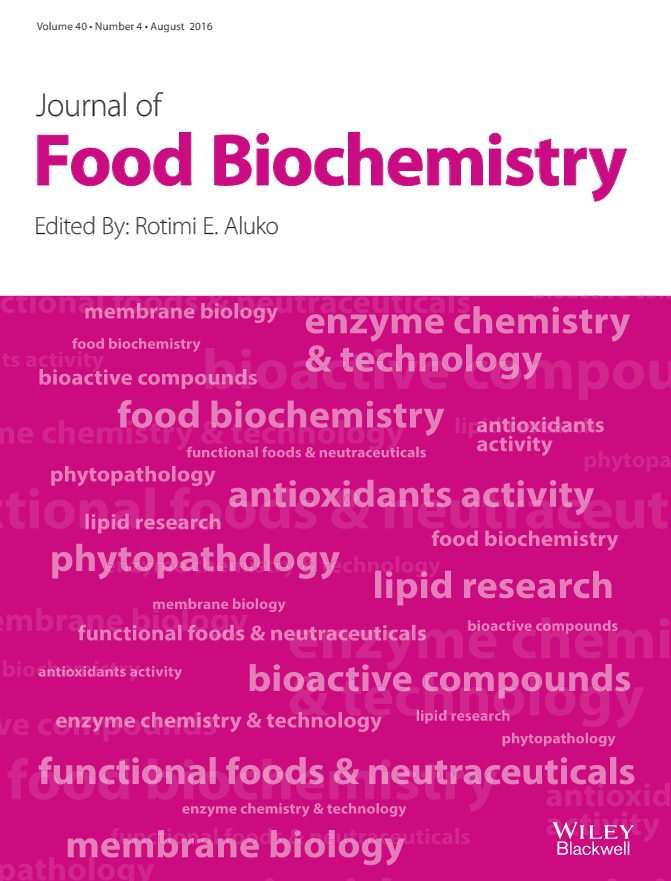
Systematic Review
Cinnamon supplementation contributes to the improvement of insulin resistance in patients with PCOS.
Javad Heshmati, Mahdi Sepidarkish, Mojgan Morvaridzadeh, Farnaz Farsi, Nishant Tripathi, Maryam Razavi, Mahroo Rezaeinejad
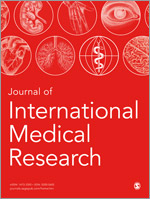
Systematic Review
For primary dysmenorrhoea, cinnamon/fennel/ginger effectively reduced pain intensity, and cinnamon shortened the duration of pain.
Xu Y, Yang Q, Wang X

Systematic Review
Cinnamon supplementation may help manage metabolic parameters in polycystic ovary syndrome patients by reducing fasting blood sugar, insulin, LDL-C, total cholesterol, and triacylglycerol levels.
Heydarpour F, Hemati N, Hadi A, Moradi S, Mohammadi E, Farzaei MH
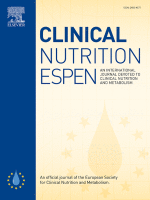
Systematic Review
Cinnamon supplementation can improve blood pressure by a modest degree.
Hadi A, Campbell MS, Hassani B, Pourmasoumi M, Salehi-sahlabadi A, Hosseini SA
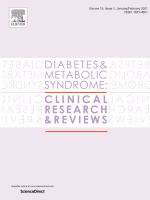
Systematic Review
Cinnamon supplementation in type 2 diabetes patients significantly reduces systolic and diastolic blood pressure, but doesn't significantly affect body weight and waist circumference.
Jamali N, Jalali M, Saffari-Chaleshtori J, Samare-Najaf M, Samareh A
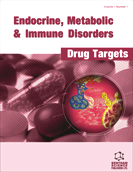
Systematic Review
Cinnamon supplementation has favorable effects on diastolic blood pressure and long-term effects on systolic blood pressure.
Hadi A, Campbell MS, Hassani B, Pourmasoumi M, Salehi-Sahlabadi A, Hosseini SA.
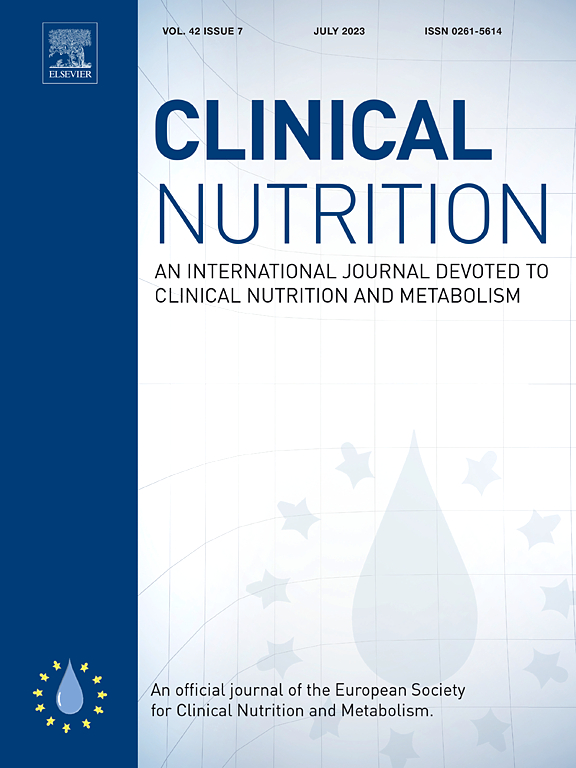
Systematic Review
Cinnamon intake significantly reduces body weight, body mass index, waist circumference, and fat mass in adults, and can be recommended as a supplement for obesity management.
Mousavi SM, Rahmani J, Kord-Varkaneh H, Sheikhi A, Larijani B, Esmaillzadeh A

Systematic Review
Cinnamon supplementation can significantly reduce body weight, body mass index, and waist-hip ratio.
Zeinab Yazdanpanah,Maryam Azadi-Yazdi,Hadis Hooshmandi,Nahid Ramezani-Jolfaie,Amin Salehi-Abargouei,

Systematic Review
Cinnamon supplementation leads to a significant reduction in both systolic and diastolic blood pressure in adults.
Seyed Mohammad Mousavi, Ahmad Jayedi, Yahya Jalilpiran, Maryam Hajishafiee, Azadeh Aminianfar, Ahmad Esmaillzadeh.
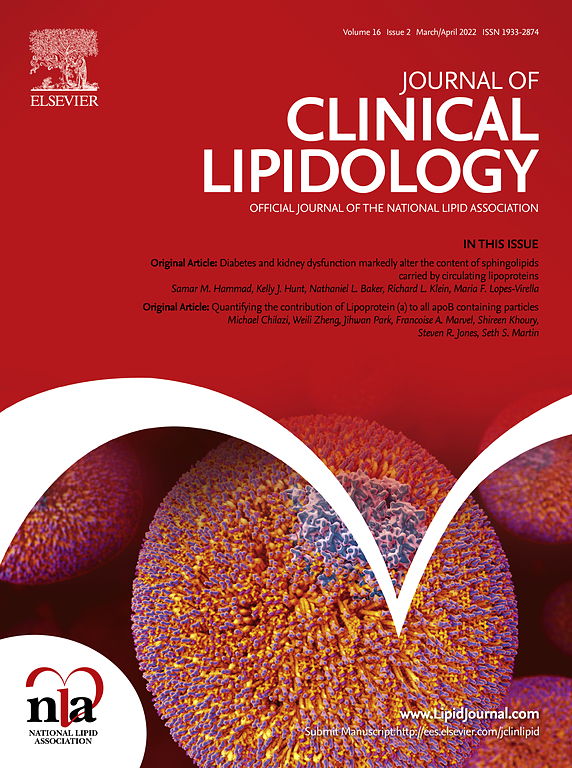
Systematic Review
Cinnamon supplementation significantly reduces blood triglycerides and total cholesterol levels without affecting low-density and high-density lipoprotein cholesterol.
Maierean SM, Serban MC, Sahebkar A, Ursoniu S, Serban A, Penson P, Banach M

Clinical Study
Cinnamon shows significant positive effects in reducing the severity of physical symptoms of premenstrual syndrome among adolescent girls at Mansoura University.
Hashim S, El-Sayed H, Wasel S
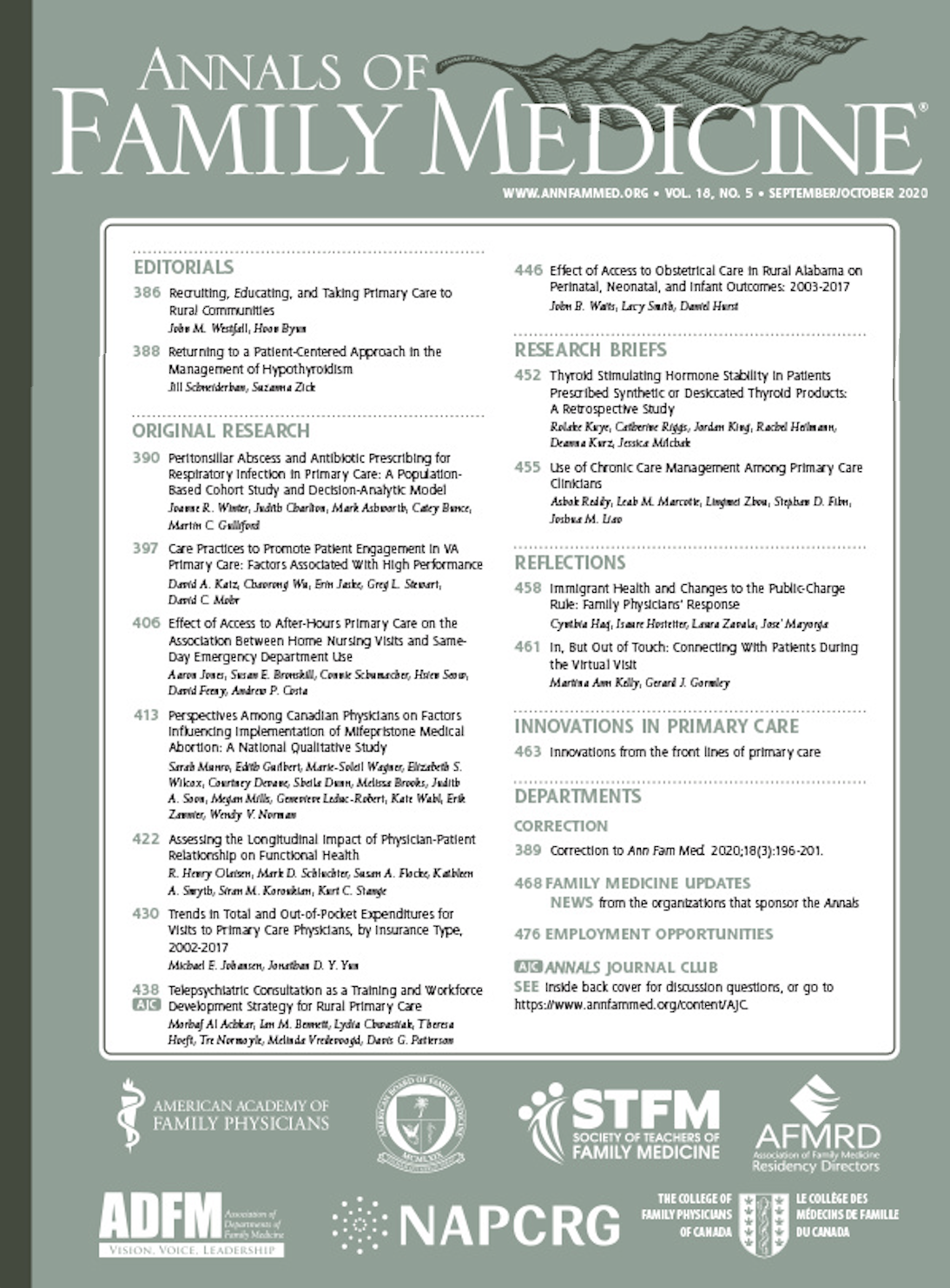
Systematic Review
The consumption of cinnamon is associated with a statistically significant decrease in levels of fasting plasma glucose, total cholesterol, LDL-C, and triglyceride levels, and an increase in HDL-C levels.
Robert W. Allen, Emmanuelle Schwartzman, William L. Baker, Craig I. Coleman and Olivia J. Phung

Systematic Review
Cinnamomum Zeylanicum shows potential medicinal effects such as reducing blood glucose levels and possessing anti-microbial properties.
Ranasinghe P, Pigera S, Premakumara GAS, Galappaththy P, Constantine GR, Katulanda P
Executive Summary
Write an executive summary in the form of a blog article on the topic of "Research into Chinese medicine treatment for Cinnamon" summarising the research below and using language that can be easily understood by patients and avoiding medical jargon using a professional and caring tone of voice.
Write an executive summary in the form of a blog article on the topic of "Researched Chinese medicine treatments for Cinnamon" summarising the research below in an objective and easy to understand way, and using language that can be easily understood by patients. Group the article into Chinese medicine treatments first, followed by nutrition and other treatments. Avoid using medical jargon and use a professional and caring tone of voice.
Write me a concise but easy to understand executive summary on the topic of "Chinese medicine treatments for Cinnamon" based on the following research that I will give you. Your summary should be 2 paragraphs long in Australian English spelling and include references to the studies.
A Randomised Controlled Trial published in 2023 in the journal Journal of Food and Dairy Sciences found that Cinnamon, ginger, and mint enhanced chocolates effectively reduce menstrual pain and improve blood iron levels without increasing body weight or negatively affecting cholesterol. The methodology of the study involved a sample of 48 female student volunteers, aged 18-25, from Mansoura University who were experiencing dysmenorrhea. These volunteers were divided into eight groups of six and each group was given a different type of chocolate: regular chocolate, chocolate without herbal powder, chocolate with cinnamon powder, chocolate with cinnamon oil, chocolate with ginger powder, chocolate with ginger oil, chocolate with mint powder, and chocolate with mint oil. Discussion of the results demonstrated that the consumption of chocolates supplemented with cinnamon, ginger, and mint powders and their respective essential oils led to a significant improvement in participants' hemoglobin scores compared to a control group which consumed normal chocolate. Furthermore, it was found that these chocolates had a positive influence on serum total cholesterol, triglycerides, high-density lipoprotein, and low-density lipoprotein scores. Importantly, chocolate consumption did not lead to an increase in the participants' body mass index, proving that these chocolate variants could reduce menstrual pain and lift blood iron levels without instigating weight gain or having adverse effects on cholesterol levels.
A Randomised Controlled Trial published in 2022 in the journal Frontiers in Nutrition found that In women with polycystic ovary syndrome, cinnamon reduced insulin resistance and testosterone levels similar to metformin, and ginger decreased follicle-stimulating and luteinizing hormones. In the methodology of the study, 100 women diagnosed with polycystic ovary syndrome were divided into four groups. Each group received a different treatment: cinnamon, ginger, metformin, or placebo. The dosage for these treatments was 500 mg, three times a day, administered over a period of 8 weeks. The participants' sex hormones, weight revelations, along with glycemic and lipid markers were monitored before and after this period. Several participants were disqualified because of unspecified factors, resulting in a final sample size of 83. In terms of results, all groups saw a decrease in weight and body mass index. The metformin and cinnamon groups specifically had notably decreases in their insulin resistance, meaning that these treatments were effective in improving metabolic health. Additionally, the ginger group experienced a reduction in follicle-stimulating hormone and luteinizing hormone levels unlike the other groups. Testosterone levels were lowered in the metformin and cinnamon groups, but no significant changes in dehydroepiandrosterone were observed in any of the groups. These results indicate the potential use of cinnamon and ginger as alternative treatments in managing polycystic ovary syndrome.
A Meta-Analysis published in 2022 in the journal Frontiers in Pharmacology found that Cinnamon is a safe therapeutic agent without significant adverse effects based on systematic reviews and meta-analyses. The researchers conducted a thorough search of PubMed, EMBASE, and the Cochrane Library, identifying relevant systematic reviews and meta-analyses on human subjects' cinnamon safety. The search consisted of articles up to September 2021, with the PRISMA 2020 guidelines followed for comprehensive reporting and transparency. The reliability of these studies' methodology was determined using methodological quality standards. The review included three meta-analyses and one systematic review, with two of the four classified as moderate quality, and the others as low quality. Generally, the academic studies found no significant harmful effects compared to a placebo, regardless of the dose or length of therapy. The findings suggest that humans well tolerate cinnamon, as no adverse reactions were observed in the study subjects. This evidence confirms the safety of cinnamon consumption, potentially providing health benefits as auxiliary treatment without significant risk of harm.
A Cohort Study published in 2022 in the journal Frontiers in Pharmacology found that The majority of reproductive age women with endometriosis in Taiwan use traditional Chinese medicine, specifically Gui Zhi Fu Ling Wan, to relieve related symptoms. The methodology of this study involved analyzing the use of TCM among women with endometriosis in Taiwan. Researchers evaluated the usage, frequency of service, and the specific Chinese herbal products prescribed for endometriosis using a randomly sampled cohort of 1,000,000 beneficiaries from the National Health Insurance Research Database. In terms of results, it was found that most women with endometriosis used TCM in dealing with their symptoms. These women were more likely to seek out TCM treatment than those without symptoms. Gui-Zhi-Fu-Ling-Wan, a Cinnamon Twig and Poria Pill known for its sedative and anti-inflammatory properties, was the most commonly prescribed Chinese herbal formula. This specific TCM plays a significant role in treating the discomfort associated with endometriosis, showing a preference towards natural remedies over conventional ones.
A Systematic Review published in 2021 in the journal Journal of Ovarian Research found that Cinnamon supplementation may significantly enhance metabolic status in women with polycicstic ovary syndrome, notably improving high-density lipoprotein and insulin sensitivity, and decreasing low-density lipoprotein, triglyceride, and blood glucose levels. The systematic review employed a PICO framework where the population was subjects with polycystic ovary syndrome (PCOS), the intervention was oral cinnamon supplement, the comparison group was either a control or a placebo group, and the outcome measured were changes in inflammatory, oxidative stress, lipid profile, glycemic, hormonal and anthropometric parameters, and ovarian function. To gather relevant research studies, databases including PubMed, Scopus, EMBASE, ProQuest, and Google Scholar were searched right from their inception until January 2020 using specific, relevant keywords. Out of the initial 266 studies found, only nine met the criteria for evaluation. The types of studies considered for this review included all clinical trials, animal studies, and english-language journal studies. The results showed a promising improvement in metabolic status in PCOS patients with cinnamon supplementation. This was shown through increased high-density lipoprotein and insulin sensitivity, and a decrease in low-density lipoprotein, triglyceride, and blood glucose levels in these patients. However, the impact of cinnamon on body weight and body mass index was inconsistent across the studies. Similarly, while the studies showed improved results regarding the effects of cinnamon on oxidative stress and ovarian function, the specific mechanisms behind these effects still need to be fully elucidated. Future studies should focus on observing clinical changes after cinnamon supplementation in PCOS through clinical trials with higher doses of cinnamon and a longer duration of intervention.
A Systematic Review published in 2020 in the journal Complementary Therapies in Medicine found that Cinnamon supplementation significantly decreases inflammation and oxidative stress levels, serving as a potential additive for cardiometabolic health improvement. The systematic review and meta-analysis followed the Preferred Reporting Items of Systematic Reviews and Meta-Analysis guidelines. A comprehensive search for appropriate clinical trials was performed across multiple databases including PubMed/MEDLINE, Scopus, Cochrane Library, Web of Science, Embase, and Google Scholar until January 2020. After duplicates were removed, 1145 studies were found eligible and 12 studies were finally included in the meta-analysis, investigating the impact of cinnamon supplementation dosages ranging between 1.5 to 4 grams per day. The results of the meta-analysis revealed that cinnamon supplementation led to a significant reduction in inflammation markers, C-reactive protein and interleukin-6, alongside a decrease in malondialdehyde, an oxidative stress marker. Concurrently, an increase was observed in the total antioxidant capacity following the supplementation, implying an enhancement in the body's defensive ability against oxidative damage. Nevertheless, no significant change was identified in the levels of intercellular adhesion molecule-1 after the cinnamon supplementation.
A Systematic Review published in 2020 in the journal Journal of Food Biochemistry found that Cinnamon supplementation contributes to the improvement of insulin resistance in patients with PCOS. As the first systematic review and meta-analysis evaluating the effect of cinnamon in women with PCOS, this study indicates that supplementation with cinnamon reduced HOMA-IR and FSI.
A Systematic Review published in 2020 in the journal Journal of International Medical Research found that For primary dysmenorrhoea, cinnamon/fennel/ginger effectively reduced pain intensity, and cinnamon shortened the duration of pain. Nine studies with 647 patients were selected. Compared with the results in the control group, pain intensity was significantly relieved in the trial group when assessed by the intervention, observation period, and study quality. Pain duration was significantly shorter in the trial group. No publication bias was observed for either outcome.
A Systematic Review published in 2020 in the journal Journal of Ethnopharmacology found that Cinnamon supplementation may help manage metabolic parameters in polycystic ovary syndrome patients by reducing fasting blood sugar, insulin, LDL-C, total cholesterol, and triacylglycerol levels. In order to evaluate the effect of cinnamon supplementation on metabolic parameters of PCOS patients, relevant clinical trials were systematically reviewed and analysed. Data was collated from multiple credible databases including PubMed, Embase, the Cochrane library, Scopus and Web of Science, up until August 2019. Studies were selected that provided information specifically about the impact of cinnamon supplementation on metabolic parameters amongst PCOS patients. Standard methods were used to assess heterogeneity, publication bias and sensitivity analysis with five clinical trials pooled together using a weighted mean-difference calculation. The findings of the meta-analysis showed that cinnamon supplementation does not significantly affect body weight and body mass index in PCOS patients. However, it was found that cinnamon supplementation led to a significant decrease in fasting blood sugar, fasting insulin, and HOMA-IR, along with reducing the serum levels of LDL-C, total cholesterol, and triacylglycerol. Additionally, there was an observed improvement in serum concentration of HDL-C with cinnamon supplementation. Ultimately illustrating that cinnamon supplementation may play a significant role in managing metabolic parameters in polycystic ovary syndrome patients.
A Systematic Review published in 2020 in the journal Clinical Nutrition ESPEN found that Cinnamon supplementation can improve blood pressure by a modest degree. Meta-analysis of 9 RCTs with 641 participants showed significant reductions in both systolic (WMD: −5.17 mmHg, 95% CI: −9.35 to −0.99, P = 0.01) and diastolic blood pressure (WMD: −3.36 mmHg, 95% CI: −5.67 to −1.04, P ≤ 0.001) after cinnamon supplementation. Subgroup analyses indicated that these results were significant only when cinnamon was administered at the dosages of ≤2 g/day, for a period longer than 8 weeks, and in participants with a baseline BMI of ≥30 kg/m2.
A Systematic Review published in 2020 in the journal Diabetes & Metabolic Syndrome: Clinical Research & Reviews found that Cinnamon supplementation in type 2 diabetes patients significantly reduces systolic and diastolic blood pressure, but doesn't significantly affect body weight and waist circumference. This systematic review and meta-analysis diligently looked for related studies in databases like PubMed, Embase, Scopus, Web of Science and Cochrane Library. The search was conducted up to August 22, 2019, and aimed at finding the impact of cinnamon supplementation on blood pressure and certain anthropometric parameters among patients with type 2 diabetes. To gauge the effectivity, they used standard mean difference and confidence intervals. In cases of heterogeneity, fixed and random effect models were utilized. The collated data was analyzed using Stata 13. After refining the records, nine suitable articles were chosen for review. The meta-analysis results indicated a significant decrease in systolic and diastolic blood pressure in type 2 diabetic patients following the incorporation of cinnamon in their diet. However, the supplement did not result in a significant change in their body weight, body mass index, and waist circumference. These fluctuations in anthropometric factors were noted, but they did not reach a level of statistical significance.
A Systematic Review published in 2020 in the journal Endocrine, Metabolic & Immune Disorders - Drug Targets found that Cinnamon supplementation has favorable effects on diastolic blood pressure and long-term effects on systolic blood pressure. Out of 927 records, 8 trials that enrolled 582 participants were included. The pooled effect size showed that systolic blood pressure did not change following cinnamon supplementation. Also cinnamon supplementation in long-duration (≥ 8weeks) had a significant effect on systolic blood pressure. Pooled analysis showed that cinnamon had a significant effect on diastolic blood pressure. In addition, results from both duration subsets and high dose (>1500 mg/day) of cinnamon supplementation were significant.
A Systematic Review published in 2020 in the journal Clinical Nutrition found that Cinnamon intake significantly reduces body weight, body mass index, waist circumference, and fat mass in adults, and can be recommended as a supplement for obesity management. Various online search engines such as PubMed, SCOPUS, Google Scholar, and Cochrane Library were trawled to find relevant articles on the impact of cinnamon consumption on obesity measures. The data from these articles was then combined and expressed as weighted mean difference and 95% confidence intervals utilizing the random-effects method. The potential non-linear association was appraised via fractional polynomial modeling. The study incorporated 12 trials from an initial pool of 679 records, bringing together a total of 786 participants. The aggregated outcome demonstrates that cinnamon intake can significantly decrease body weight, body mass index, waist circumference, and fat mass in adults. The impact on body weight was particularly pronounced in subjects under 50 years old and those with a higher baseline body mass index (≥30 kg/m). Daily dosages of cinnamon at or above 2 grams, and administered for 12 weeks or more resulted in significant reductions in fat mass. There was a non-linear reduction in body weight and waist circumference with the administration of cinnamon over the study period.
A Systematic Review published in 2019 in the journal Phytotherapy Research found that Cinnamon supplementation can significantly reduce body weight, body mass index, and waist-hip ratio. In the meta-analysis, various databases (including Medline, ISI Web of Science, Scopus, Google Scholar, and Cochrane Library) were searched without limitations until August 2019 for relevant randomized controlled clinical trials. The risk of bias of the randomized controlled clinical trials was appraised with the Cochrane collaboration's tool. The random-effects model was employed for the meta-analysis. The conclusive results indicate that cinnamon supplementation has a notable effect in reducing body mass index, body weight, and waist-hip ratio. Meanwhile, cinnamon supplementation didn't yield significant effects on waist circumference and body fat mass. These results were deduced from twenty-one randomized controlled trials involving a total of 1,480 participants.
A Systematic Review published in 2019 in the journal Critical Reviews in Food Science and Nutrition found that Cinnamon supplementation leads to a significant reduction in both systolic and diastolic blood pressure in adults. This systematic review and meta-analysis included studies up to July 2019, sourced from databases like PubMed/Medline, Scopus, ISI Web of Science, Embase, and Google Scholar. The research focused on randomized clinical trials that primarily explored the effect of oral cinnamon supplementation on blood pressure parameters, including systolic or diastolic blood pressure. From the 469 citations, nine trials involving 641 subjects were included. The results inferred that cinnamon supplementation leads to a noticeable decrease in both systolic and diastolic blood pressure. A more remarkable effect on systolic blood pressure was observed in trials using less or equal to 2g cinnamon, lasting for 12 weeks or more, and included participants under the age of 50. Diastolic blood pressure was also reduced using lower doses of cinnamon. No significant non-linear associations were detected between cinnamon supplementation dosage, study duration, and both systolic and diastolic blood pressure.
A Systematic Review published in 2017 in the journal Journal of Clinical Lipidology found that Cinnamon supplementation significantly reduces blood triglycerides and total cholesterol levels without affecting low-density and high-density lipoprotein cholesterol. The study's methodology included the systematic review and evaluation of 13 randomized controlled trials involving 750 participants. These trials examined the impact of cinnamon supplementation on blood lipid concentrations. The researchers performed a meta-analysis employing random effect models and calculated weighted mean differences for endpoints using a random effects model too. The results of the study indicated no substantial effect of cinnamon on low-density lipoprotein cholesterol (LDL-C) and high-density lipoprotein cholesterol (HDL-C) concentrations. However, a significant decrease in blood triglycerides and total cholesterol concentrations was observed. Furthermore, in a meta-regression analysis, no notable association was found between changes in lipid parameters and the dosage of cinnamon. However, changes in total cholesterol, LDL-C, and triglycerides were positively linked with the duration of supplementation.
A Clinical Study published in 2016 in the journal Mansoura Nursing Journal found that Cinnamon shows significant positive effects in reducing the severity of physical symptoms of premenstrual syndrome among adolescent girls at Mansoura University. The methodology used in this study was a quasi-experimental research design conducted at the nursing School of Mansoura University. The purposive sample was 150 students suffering from premenstrual syndrome, over the course of September 2012 to May 2013. The data was collected using three tools: a structured questionnaire, an assessment tool to gauge the severity of physical PMS symptoms, and a Likert scale to measure the level of student satisfaction after using cinnamon to relieve physical symptoms. The results showed a significant reduction in the severity of physical PMS symptoms after the students regularly used cinnamon. A notable correlation was found between the decrease in symptom severity and the regular use of cinnamon. Furthermore, the study found that about three-quarters of the sampled students were satisfied with the use of cinnamon for symptom relief. These findings demonstrated the potential benefits of cinnamon in alleviating PMS physical discomfort.
A Systematic Review published in 2014 in the journal Annals of Family Medicine found that The consumption of cinnamon is associated with a statistically significant decrease in levels of fasting plasma glucose, total cholesterol, LDL-C, and triglyceride levels, and an increase in HDL-C levels. To put the results of our meta-analysis into better context, the reductions found can be compared with established therapies. As an example, the reductions in fasting plasma glucose levels (−24.59 mg/dL) are less than those achieved by metformin monotherapy (−58 mg/dL) and somewhat more than the newer oral agents, such as sitagliptin (−16 to −21 mg/dL). Our results showed cinnamon to reduce LDL-C and triglyceride levels by approximately 9.4 and 29.6 mg/dL, respectively. As a comparison, the lipid-lowering drugs pravastatin and gemfibrozil reduce LDL-C and triglyceride levels by approximately 50 mg/dL (26%) and 50 mg/dL (31%), respectively. Based on currently available literature, cinnamon may have a beneficial effect on fasting plasma glucose, LDL-C, HDL-C, and triglyceride levels in patients with type 2 diabetes. There is no statistically significant effect on hemoglobin A1c, however. Caution should be exercised in applying the results of this analysis to patient care because of the certainty of the dose and duration of cinnamon use and uncertainty of the ideal patient population.
A Systematic Review published in 2013 in the journal BMC Complementary Medicine and Therapies found that Cinnamomum Zeylanicum shows potential medicinal effects such as reducing blood glucose levels and possessing anti-microbial properties. The researchers conducted a thorough systematic review using databases such as PubMed, Web of Science, and SciVerse Scopus. The documents considered were those published before December 31, 2012. Keywords like "Cinnamomum zeylanicum", "Ceylon cinnamon", "True cinnamon", and "Sri Lankan cinnamon" were used to filter the studies. Furthermore, a manual search was performed in the reference lists to add more relevant studies. The review discovered numerous benefits of CZ. After excluding duplicate articles, a total of 70 studies were analysed. These studies pointed to medicinal benefits such as anti-microbial and anti-parasitic activity, lowering blood glucose levels, reducing blood pressure and serum cholesterol, antioxidant properties, and an ability to inhibit symptoms of Alzheimer's. Other listed benefits included reducing the effects of osteoporosis and gastric ulcers, anti-inflammatory and pain relieving properties, aiding wound healing, and having liver-protecting effects, all with minimal toxic and adverse effects reported.
Moderation Tools
Topic
Sign In
Users not signed in are limited to viewing the 5 most recent items of content.